Jewish day schools fundamentally strengthen the trajectory of Jewish knowledge, identity, community, and leadership. This is a core principle guiding Prizmah: Center for Jewish Day Schools as it begins to implement its new five-year strategic plan, B’Yachad: Towards a Vibrant Future for Jewish Day Schools. The plan—which builds on Prizmah’s past learnings, extensive stakeholder engagement, and a research deep-dive—details the organization’s vision of a thriving, passionate, engaged, and committed network of Jewish day schools that shape our community for generations to come. Prizmah will help unlock the potential of the North American Jewish day schools through strategic investment in four key areas: Deepen Talent, Catalyze Resources, Accelerate Innovation, and Network to Learn.
With this investment, Jewish day schools will be part of a field in which:
- students graduate exceptionally well-equipped with the academic and social-emotional strengths that enable them to pursue their dreams;
- graduates’ Jewish identities are deeply enriched to last a lifetime;
- families are excited to enroll;
- talented individuals are drawn to the school’s career offerings; and
- schools have the sustainable resources they need to grow.
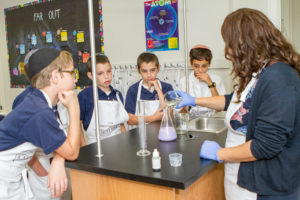 Core to Prizmah’s success—and the success of Jewish day schools, educators, leaders, and students—is the recognition that schools and communities are inherently linked. Together, they form a virtuous cycle, wherein investments in the key aspects of thriving Jewish day schools reinforce and embolden one another. Prizmah supports North American Jewish day schools and communities of all sizes and denominations to tackle the diverse needs and challenges of day schools on their path to success. This vision embraces the passion of schools’ leaders and educators, as well as the educational and philosophical differences of schools, which Prizmah serves according to their individual needs.
Core to Prizmah’s success—and the success of Jewish day schools, educators, leaders, and students—is the recognition that schools and communities are inherently linked. Together, they form a virtuous cycle, wherein investments in the key aspects of thriving Jewish day schools reinforce and embolden one another. Prizmah supports North American Jewish day schools and communities of all sizes and denominations to tackle the diverse needs and challenges of day schools on their path to success. This vision embraces the passion of schools’ leaders and educators, as well as the educational and philosophical differences of schools, which Prizmah serves according to their individual needs.
Leadership is a space filled with risk taking, vulnerabilities, and very often loneliness. Being part of Prizmah’s leadership training gave me a foundation that I know will propel me forward on my professional journey, as well as a community and support system I can rely on to work through any aspect of leadership.
– HEAD OF SCHOOL
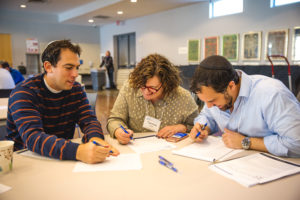 While striving for vibrancy, Jewish day schools also face significant challenges. The changing academic, social, and technological needs of today’s youth create need and opportunity to re-think education—just as the demographics, dynamics, and institutions of Jewish communities are also changing. As the cost of education rises and many incomes stagnate, the struggle to provide an affordable Jewish education to all who want it grows, leading to challenges in enrollment. Prizmah creates the space and environments for days schools to explore these challenges and seek solutions together.
While striving for vibrancy, Jewish day schools also face significant challenges. The changing academic, social, and technological needs of today’s youth create need and opportunity to re-think education—just as the demographics, dynamics, and institutions of Jewish communities are also changing. As the cost of education rises and many incomes stagnate, the struggle to provide an affordable Jewish education to all who want it grows, leading to challenges in enrollment. Prizmah creates the space and environments for days schools to explore these challenges and seek solutions together.
As a Head of School from a small community, it can be hard to take a moment to just…breathe. With the mounting pressures of finances, development, assessments, admissions, and H.R. how many moments do we get to learn and problem solve with our peers? Our time at Prizmah’s Small School Retreat and the continued connections after give us the tools for self-care and school-care. – HEAD OF SCHOOL
Prizmah believes that educating Jewish youth is the most important investment to make in their future—as Jews, and as active contributors to society—and in the future of the Jewish community. Vibrant Jewish day schools inspire and nurture young people, prepare them for remarkable and meaningful lives, and enable them to truly thrive. Prizmah works every day to support these schools and their leaders, laying the foundation so that the Jewish community will be empowered and fueled by stronger voices, identities, values, and leadership.
The Jim Joseph Foundation is one of many supporters of Prizmah.

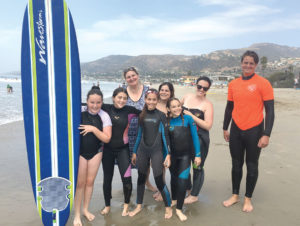 ay leaders, professionals and parents all directly and indirectly impact teen engagement. Especially in their the early teen years, parents require targeted marketing and outreach. Critically, the teen initiatives recognize that parents themselves often seek a supportive community to support their parenting, and many of the initiatives now offer workshops and community-building activities for parents.
ay leaders, professionals and parents all directly and indirectly impact teen engagement. Especially in their the early teen years, parents require targeted marketing and outreach. Critically, the teen initiatives recognize that parents themselves often seek a supportive community to support their parenting, and many of the initiatives now offer workshops and community-building activities for parents.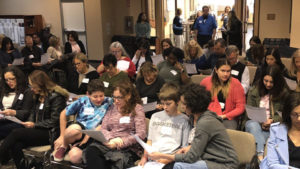 hole teen, including their mental health and overall wellness, is emerging as foundational to effective Jewish teen education and engagement. Several communities offer workshops or conferences on adolescent development and family systems, deeper understanding of the social forces impacting teens today, and specialized training for educators in youth mental health first aid. By addressing and elevating teen wellness, Funder Collaborative communities are pioneering a new, holistic view of engagement work, with healthy, balanced and resilient teens at the center.
hole teen, including their mental health and overall wellness, is emerging as foundational to effective Jewish teen education and engagement. Several communities offer workshops or conferences on adolescent development and family systems, deeper understanding of the social forces impacting teens today, and specialized training for educators in youth mental health first aid. By addressing and elevating teen wellness, Funder Collaborative communities are pioneering a new, holistic view of engagement work, with healthy, balanced and resilient teens at the center.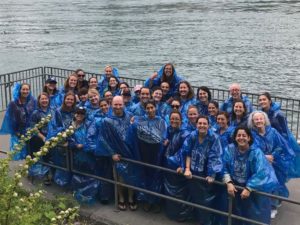
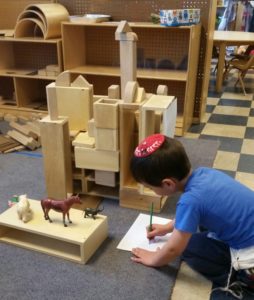 learners in the most effective ways possible. This development is critical for the field of Jewish education. Just as other fields, such as medicine and law, have research that informs and improves practice,
learners in the most effective ways possible. This development is critical for the field of Jewish education. Just as other fields, such as medicine and law, have research that informs and improves practice, 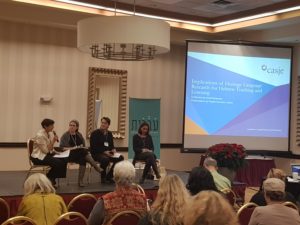 This research directly informs how educators teach Hebrew—plain and simple. We now have a clearer picture of what Hebrew language learners experience and we can apply this research to improve the outcomes in Hebrew language learning.
This research directly informs how educators teach Hebrew—plain and simple. We now have a clearer picture of what Hebrew language learners experience and we can apply this research to improve the outcomes in Hebrew language learning.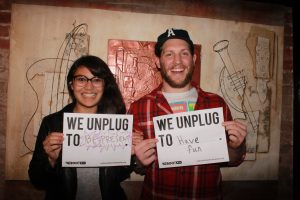
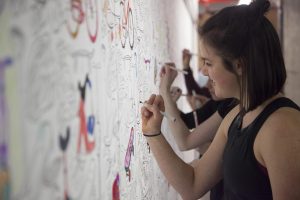
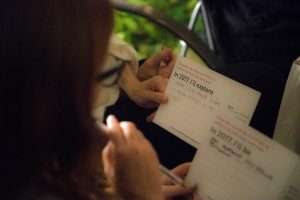
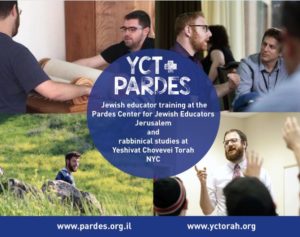 in fall 2018, the two institutions will join forces to begin training outstanding rabbis who are passionate about Jewish education.
in fall 2018, the two institutions will join forces to begin training outstanding rabbis who are passionate about Jewish education.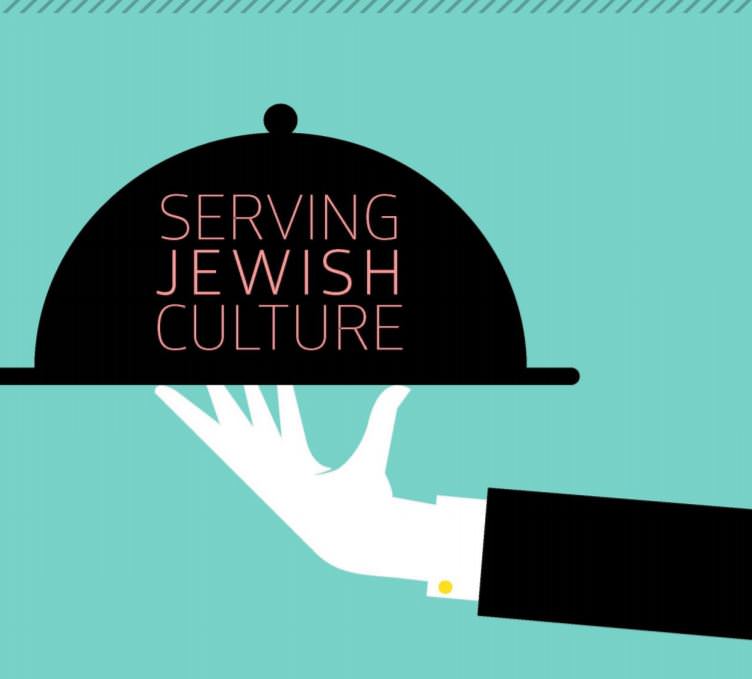 The intensive 13-month, cross-disciplinary curriculum combines coursework in Jewish cultural arts and experiential education with elective courses tailored to students’ individual professional needs and interests. During the school year, students enjoy hands-on, supervised field placements at a broad range of Washington, DC-area Jewish arts, culture, social service, and educational organizations. This element of their training is followed by the Capstone Fellows course—a summer internship placement offering the opportunity to pursue full-time work at exemplary Jewish arts and education organizations around the country and abroad, among them the Contemporary Jewish Museum in San Francisco and Polin in Warsaw, Poland.
The intensive 13-month, cross-disciplinary curriculum combines coursework in Jewish cultural arts and experiential education with elective courses tailored to students’ individual professional needs and interests. During the school year, students enjoy hands-on, supervised field placements at a broad range of Washington, DC-area Jewish arts, culture, social service, and educational organizations. This element of their training is followed by the Capstone Fellows course—a summer internship placement offering the opportunity to pursue full-time work at exemplary Jewish arts and education organizations around the country and abroad, among them the Contemporary Jewish Museum in San Francisco and Polin in Warsaw, Poland.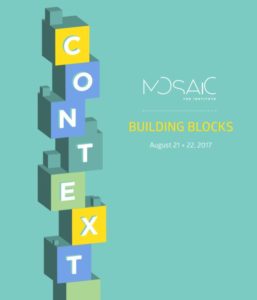 are especially interested in utilizing the arts and different methodologies of experiential education to address social justice issues and to help develop a heightened sense of civic responsibility. A track in the Master’s program focuses on teaching in social justice initiatives. Additionally, in response to growing interest in cultural and heritage tourism, the program will soon offer a track that zeroes in on the relationship between travel and experiential education.
are especially interested in utilizing the arts and different methodologies of experiential education to address social justice issues and to help develop a heightened sense of civic responsibility. A track in the Master’s program focuses on teaching in social justice initiatives. Additionally, in response to growing interest in cultural and heritage tourism, the program will soon offer a track that zeroes in on the relationship between travel and experiential education.